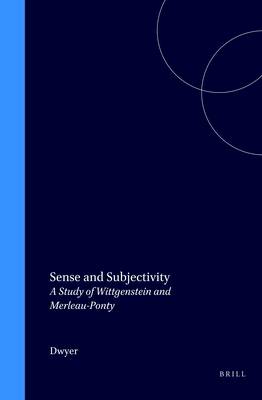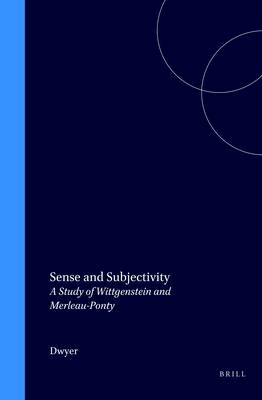
- Afhalen na 1 uur in een winkel met voorraad
- Gratis thuislevering in België vanaf € 30
- Ruim aanbod met 7 miljoen producten
- Afhalen na 1 uur in een winkel met voorraad
- Gratis thuislevering in België vanaf € 30
- Ruim aanbod met 7 miljoen producten
Omschrijving
The aim of this study is to show how the philosophies of Merleau-Ponty and the later Wittgenstein serve to establish, in very similar ways, (1) that subjects (persons) and what is subject-dependent, or in short, 'subjectivity', must be categorically distinguished from objects and what is subject-independent, or in short 'objectivity' and (2) that the 'sense' of the world as perceived, including linguistic sense, is a matter of the appearance of things and is therefore perception-dependent, and as such is in the category of subjectivity, not objectivity.
The first claim is established not only by a study of the content of the arguments of the two philosophers, but also by a study of the form of their arguments: the kind of fallacy detection they deploy against their opponents exploits a logic dictated by the subject matter.
In the course of examining a wide range of issues in meta- physics, epistemology, and the philosophies of mind, language, and mathematics, the 'Gestalt Philosophy' of Wittgenstein and Merleau-Ponty can be seen to constitute a new sort of 'anti-realism'.
The first claim is established not only by a study of the content of the arguments of the two philosophers, but also by a study of the form of their arguments: the kind of fallacy detection they deploy against their opponents exploits a logic dictated by the subject matter.
In the course of examining a wide range of issues in meta- physics, epistemology, and the philosophies of mind, language, and mathematics, the 'Gestalt Philosophy' of Wittgenstein and Merleau-Ponty can be seen to constitute a new sort of 'anti-realism'.
Specificaties
Betrokkenen
- Auteur(s):
- Uitgeverij:
Inhoud
- Aantal bladzijden:
- 236
- Taal:
- Engels
- Reeks:
- Reeksnummer:
- nr. 2
Eigenschappen
- Productcode (EAN):
- 9789004092051
- Verschijningsdatum:
- 1/05/1990
- Uitvoering:
- Hardcover
- Formaat:
- Genaaid
- Afmetingen:
- 168 mm x 248 mm
- Gewicht:
- 544 g

Alleen bij Standaard Boekhandel
+ 534 punten op je klantenkaart van Standaard Boekhandel
Beoordelingen
We publiceren alleen reviews die voldoen aan de voorwaarden voor reviews. Bekijk onze voorwaarden voor reviews.










